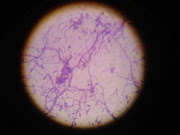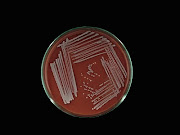Disease | Pathogen | Infection Sources | Reservoir | Control Measures |
Plague | Yersinia pestis | Bite by flea | Wild rodents | Control rodent populations, immunization |
Rocky Mountain spotted fever | Rickettsia rickettsii | Bite by infected tick | Ticks, rabbits, mice | Avoid tick exposure; treat infected individuals with antibiotics |
Psittacosis | Chlamydia psittaci | Contact with birds or bird excrement | Wild and domestic birds | Avoid contact with birds; treat infected individuals with antibiotic |
Chlamydia | Chlamydia trachomatis | Urethral, vaginal, and anal secretions | Humans | Testing for organism during routine pelvic examinations; chemotherapy of carriers and potential contacts; case tracing and treatment |
Gonorrhoea | Neisseria gonorrhoeae | Urethral and vaginal secretions | Humans | Chemotherapy of carriers and potential contacts; case tracing and treatment |
Syphilis | Treponema pallidum | Infected exudates or blood | Humans | Identification by serologicall tests; antibiotic treatment of seropositive individuals |
Meningicoccal meningitis | Neisseria meningitidis | Humans cases and carriers | Humans | Exposure treated with sulfadiazine for susceptible strains |
Pneumococcal pneumonia | Streptococcus pneumoniae | Human carriers | Humans | Antibiotic treatment; isolation of cases for period of communicability |
Tuberculosis | Mycobacterium tuberculosis | Sputum human cases; contaminated milk | Humans, cattle | Treatment with isoniazid; pasteurization of milk |
Whooping cough | Bordetella pertussis | Human cases | Humans | Immunization; case isolation |
Diphtheria | Corynebacterium diphtheriae | Human cases and carriers; infected food and fomites | humans | Immunization; quarantine of infected individuals |
Legionnaire’s disease | Legionella pneumophila | Contaminated water | High moisture environments | Decontamination of air conditioning cooling towers, etc. |
Paratyphoid | Salmonella paratyphi | Fecal contamination of food and water | Humans | Decontamination of public water sources; oversight of food handles; immunization |
Typhoid fever | Salmonella typhi | Fecal contamination of food of food and water | Humans | Decontamination of public water sources; oversight of food handlers; pasteurization of milk; immunization |
Tularemia | Salmonella typhi | Fecal contamination of food and water | Humans | Decontamination of public water sources; oversight of food handlers; pasteurization of milk; immunization |
Anthrax | Bacillus anthracis | Milk or meat from infected animals | Cattle, swine, goats, sheep, horses | Destruction of infected animals |
Bacillary dysentry | Shigella dysenteriae | Fecal contamination of food and water | Humans | Detection and control of carriers; oversight of food handlers; decontamination of water supplies |
Botulism | Clostridium botulinum | Soil contaminated food | Soil | Proper preservation of milk; control of infection in animals |
Brucellosis | Brucella melitensis | Milk or meat from infected animals | Cattle, swine, goats, sheep, horses | Pasteurization of milk; control of infection in animals |
Cholera | Vibrio cholerae | Fecal contamination of food and water | Humans | Decontamination of public water sources; immunization |
E. coli 0157 : H7 food infection | Escherichia coli O157 : H7 | Fecal contamination of food and water | Humans, cattle | Decontamination of public water sources; oversight of food handlers; pasteurization of beverages |
Epidemic typhus | Rickettsia prowazekii | Bite by infected louse | Humans, lice | Control louse Population |
Lyme disease | Borrelia burgdorferi | Bite from infected tick | Rodents, deer, ticks | Avoid tick exposures; treat infected individuals with antibiotics |





















